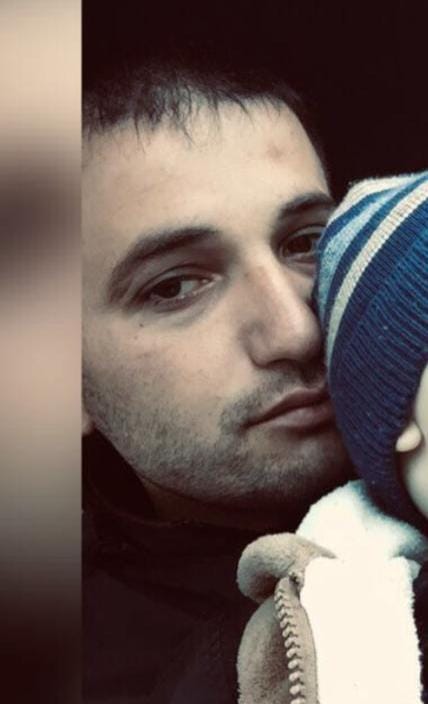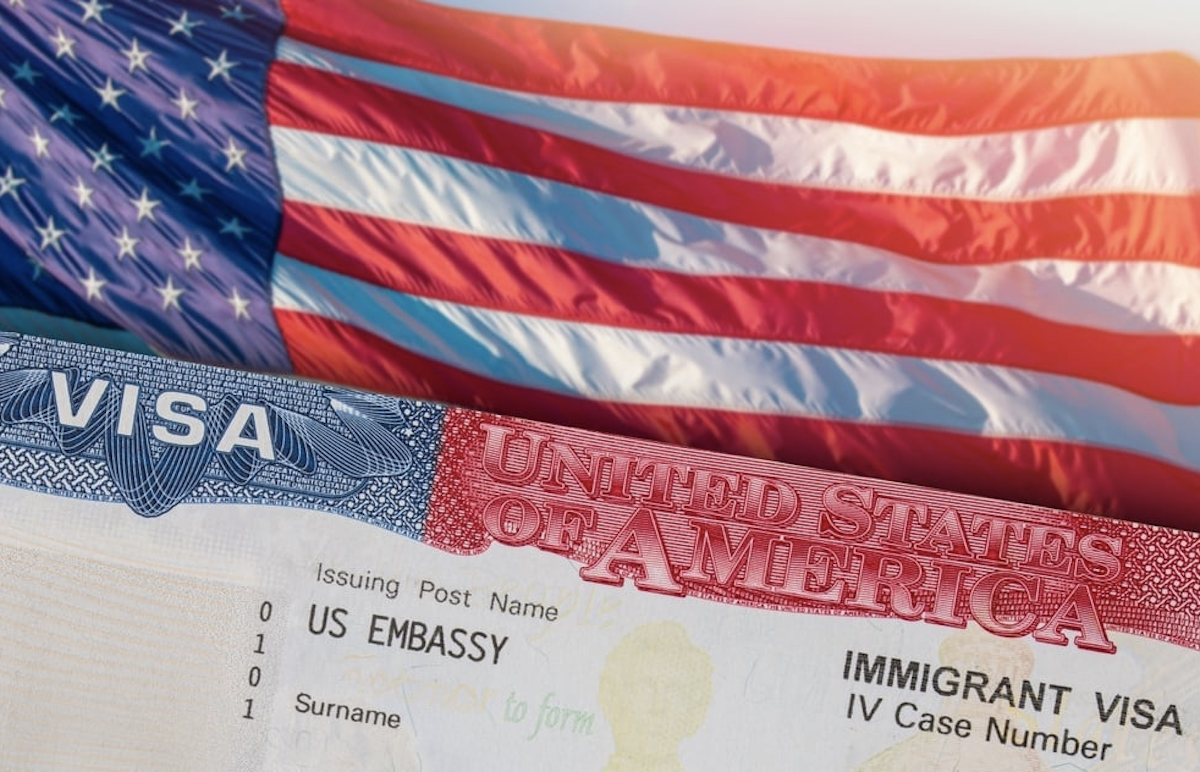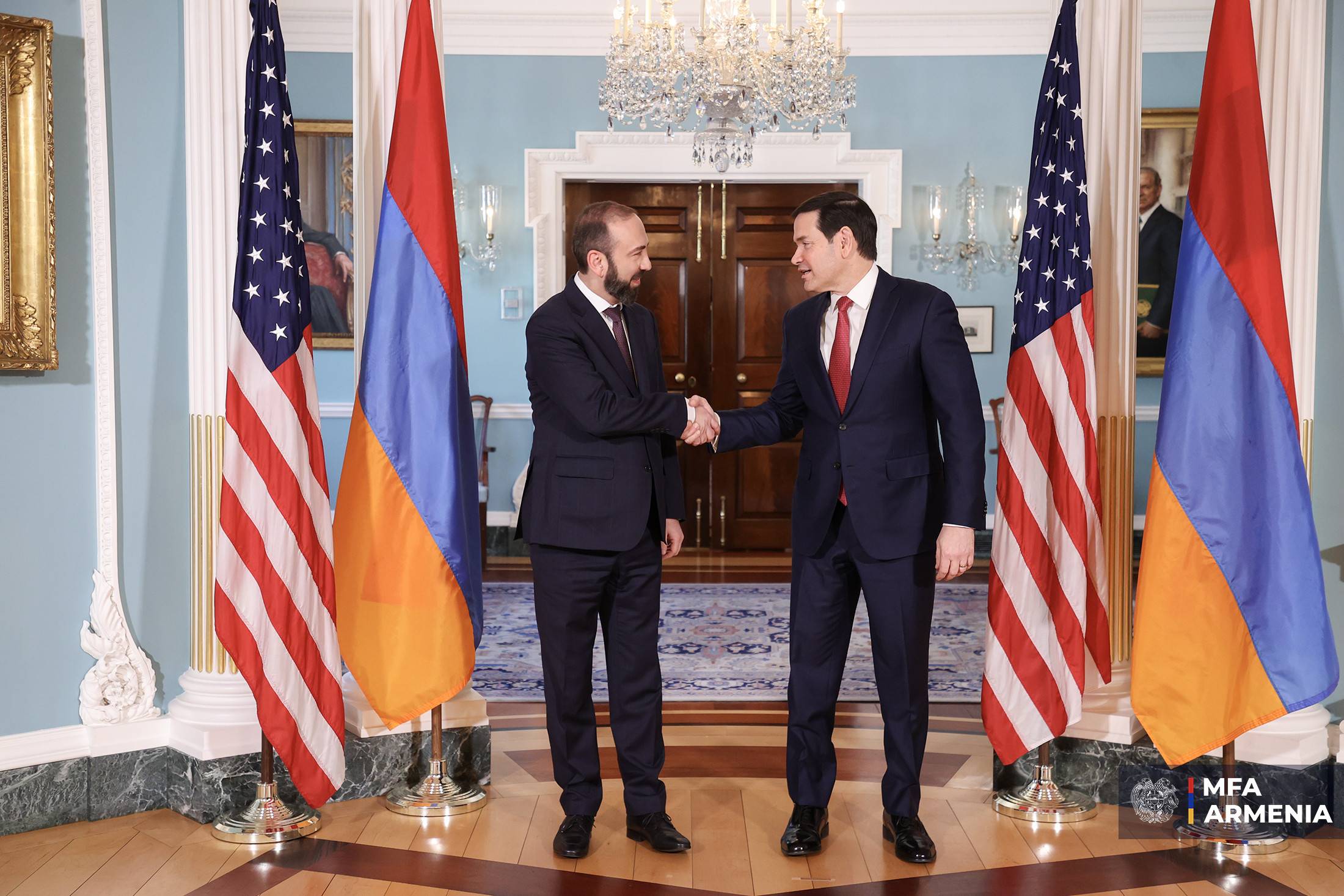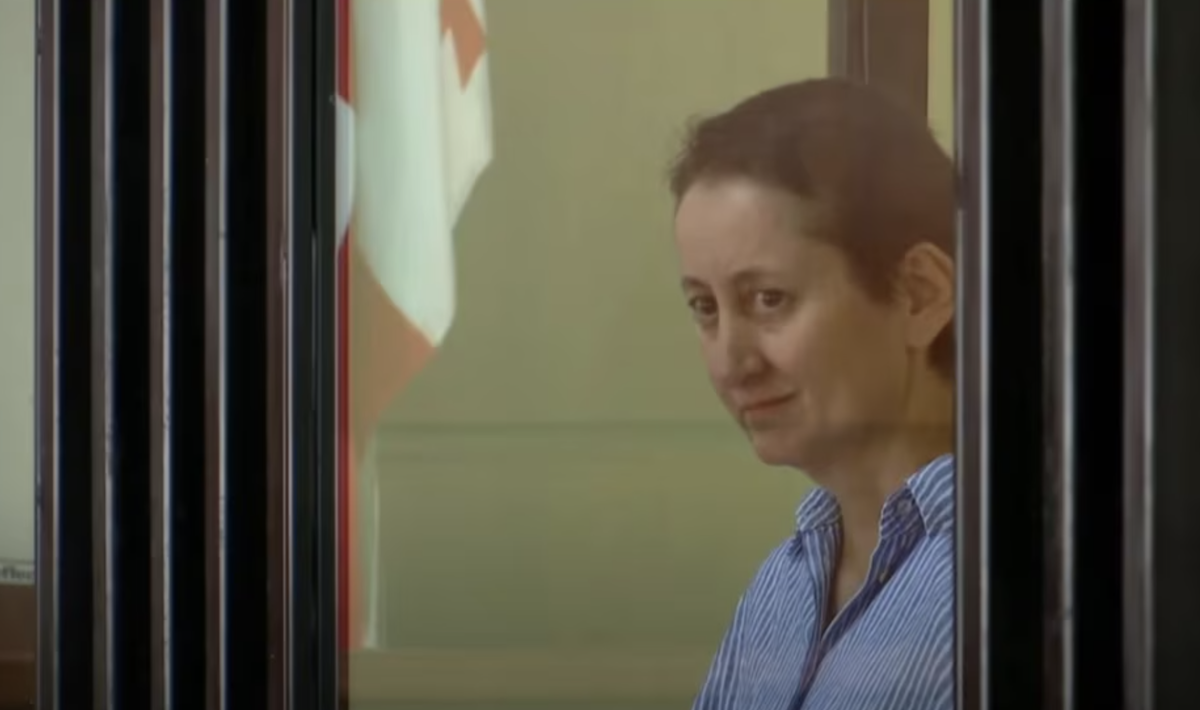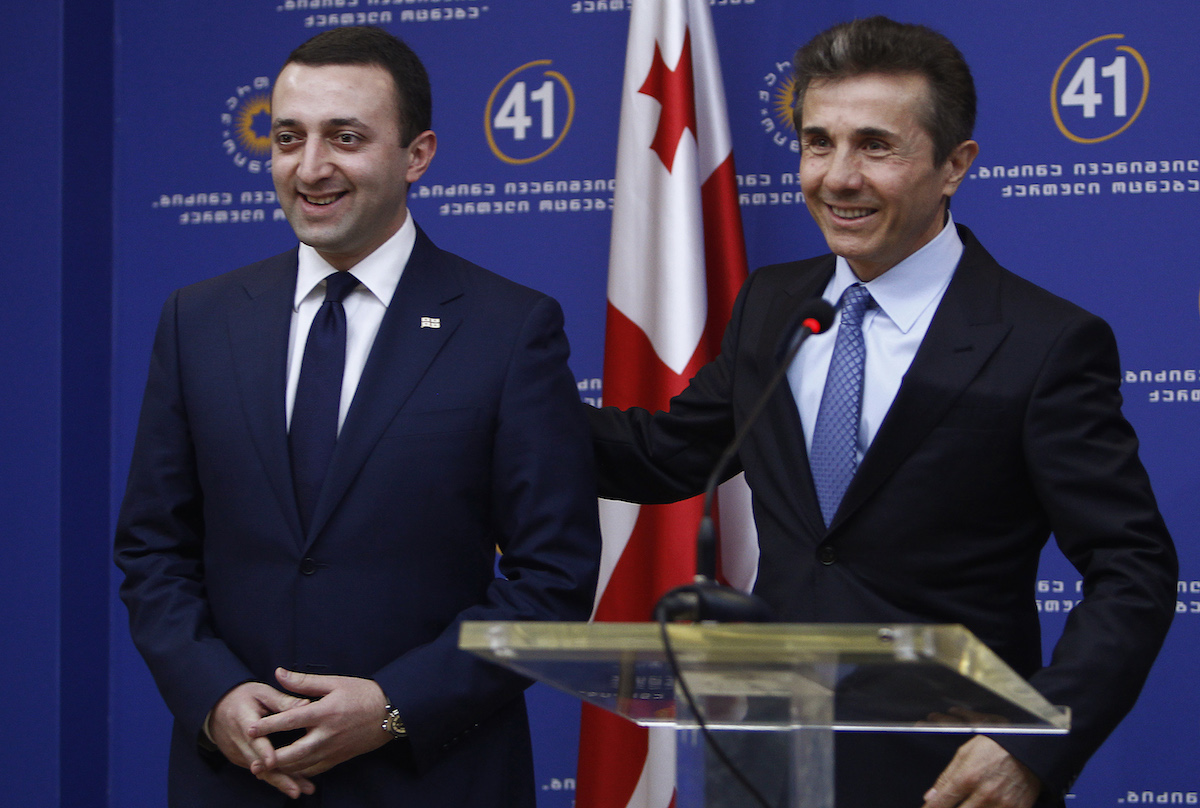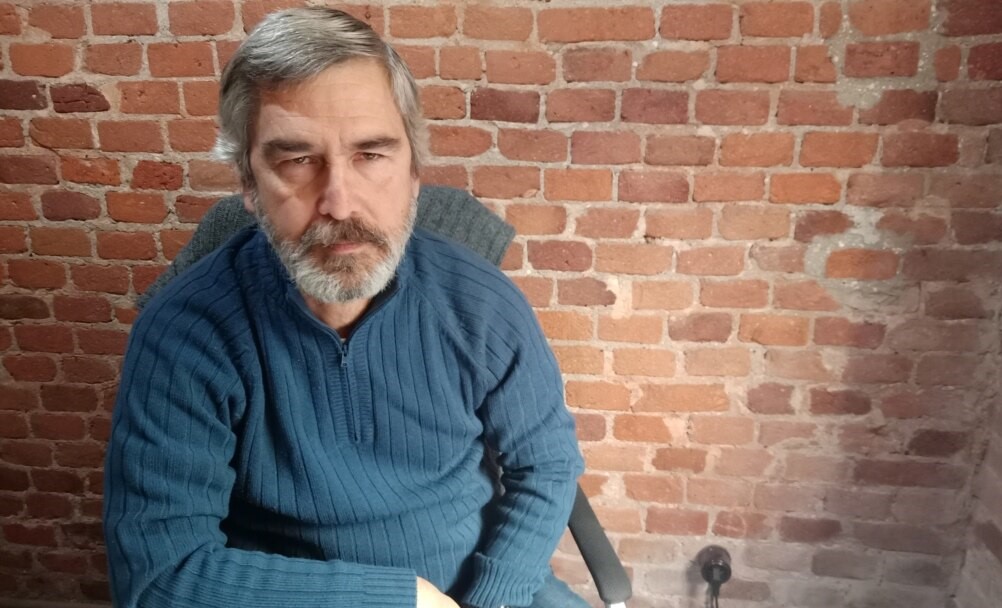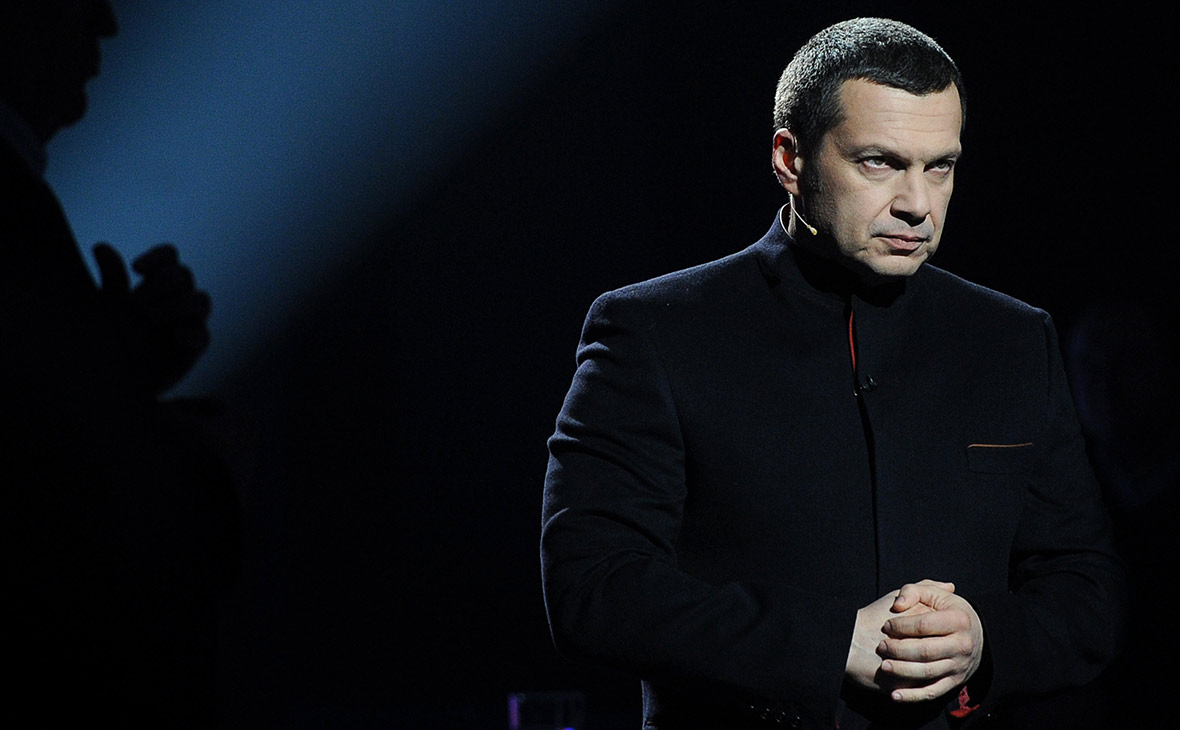Protests in South Ossetia resume after funeral of 28-year-old, president alleges ‘a Georgian trace’ in rallies
In the capital of South Ossetia, protests continued until late at night over the death of 28-year-old Inal Dzhabiev, who was allegedly tortured to death in a pre-trial detention center.
Protesters and the opposition are demanding the resignation of the president and the prosecutor general. Meanwhile, President Anatoly Bibilov hints that the protests are being controlled from Georgia.
Funeral and protest
About two thousand people attended the funeral of Inal Dzhabiev on August 31. The funeral was also attended by the President of South Ossetia Anatoly Bibilov.
After the funeral, hundreds of people gathered again in the central square. They demanded the resignation of the president and the attorney general.
In addition, an MP from the opposition Nykhas party David Sanakoev put forward demands to initiate criminal proceedings against the current prosecutor general and the already dismissed interior minister.
MP Sanakoev also insisted on reforming the South Ossetian law enforcement system and on investigating other episodes of beating suspects by interior ministry officials.
Late in the evening, protesters moved to the presidential administration building, which was cordoned off by security forces. True, they listened to the persuasions of the MPs and did not try to storm the building.
On August 30, the former president of South Ossetia (from 2001 to 2011) Eduard Kokoity also made a video message. He actually delivered an ultimatum to Anatoly Bibilov, urging him to voluntarily resign.
Beating of a civil activist
During the funeral of Dzhabiev, civil activist and businessman Timur Tskhurbati was attacked right in the middle of the street. He was beaten and hospitalized with a fractured jaw.
According to Tskhurbati himself, the reason for the attack was his comments on social media.
“I was attacked – first by a woman, a natural provocateur. She apparently wanted me to hit her. Of course, I didn’t hit her, but still there were people nearby who allegedly stood up for her. As a result, my cheekbone was broken, and a massive fight almost broke out.”
The activist appealed to society and urged people not to put up with lawlessness.
“I appeal to you – if we keep silent, it will continue, it will never end. If we do not appeal to the law, this will continue, and tomorrow they will not break my cheekbone, but again we will bury a young guy,” he said.
Power reaction
In response to outrage over the death of Inal Dzhabiyev, the president dismissed the entire government.
Eight interior ministry officers were arrested, suspected of being involved in his death.
- South Ossetia: customs regs giving rise to food and goods crisis
- The 2008 war over South Ossetia: how it all happened
However, Anatoly Bibilov has not yet publicly commented on the demands for his resignation.
Bibilov’s only comment was spread by the @wargonzo telegram channel, covering events in the Donetsk People’s Republic in eastern Ukraine.
“Georgian bots are involved in the rallies in Tskhinvali,” “The Georgian side did not fail to take advantage of the situation that provoked the political crisis, and is actively heating it up through social media. The work is carried out systematically and is probably supervised by the structures of the US State Department,” @wargonzo quoted him as saying, an exclusive interview with which he promised to publish in the near future.
“Instead of resolving the issue, Bibilov again decided to follow the advice of curators-political strategists and act according to all-Russian ‘manuals’, hence the statements about Georgian bots and the US State Department,” the Ossetian telegram-channel Bonvaernon comments in turn on this message.
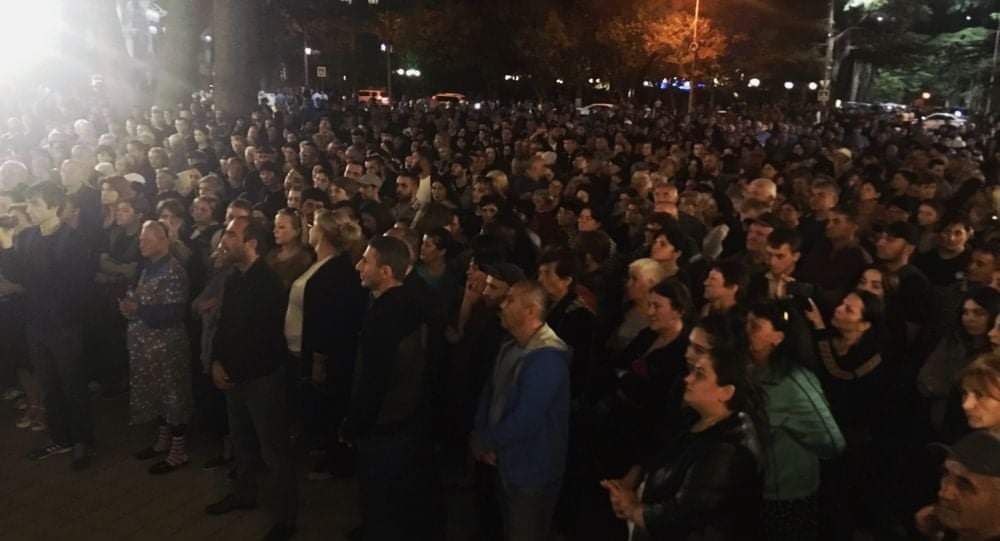
Reasons behind the protests
Many in South Ossetia agree that the reason for the outbreak of protests in Tskhinvali was not only the death of Inal Dzhabiev, but also that previous cases of arbitrariness on the part of the authorities remained uninvestigated.
This includes Vladimir Tskayev, who died from torture at a police station in 2015. The trial in this case is still ongoing.
The incidents in the prison and isolation ward in South Ossetia did not end there. The inmates and their relatives claimed that people were beaten, tortured and humiliated there.
In October 2019, riot police forcefully suppressed a hunger strike in a penal colony, brutally beating prisoners. Then it caused a political scandal, but Bibilov refused to fulfill the demands of the opposition and dismiss the ministers of justice and the ministry of internal affairs.
On June 6, 2020, about 20 inmates slit their wrists to protest the abuse.
What is happening in the republic is a personal failure of the Deputy Prime Minister of Russia Marat Khusnullin, who was entrusted with the supervision of Abkhazia and South Ossetia, writes the Russian telegram channel “Mysl-NieMysli”.
According to the source, Khusnullin’s predecessor in this position, Oleg Govorun, “failed in Abkhazia, which is evidenced by the political crisis in this country and the coming to power of the opposition in the person of Aslan Bzhania”.
“Now the scenario of Abkhazia is being repeated in South Ossetia, but now it is also burdened by the events in Belarus. A zone of instability is spreading along the borders of Russia, and the country’s leadership cannot but get nervous.”
Let us recall that the past protests in South Ossetia in 2011, as a result of which the pro-Kremlin presidential candidate Anatoly Bibilov (the current president) was forced to admit defeat, became a prelude to the 2011-2013 protests in Russia,” writes the Telegram channel.
Toponyms, terminology, views and opinions expressed by the author are theirs alone and do not necessarily reflect the views and opinions of JAMnews or any employees thereof. JAMnews reserves the right to delete comments it considers to be offensive, inflammatory, threatening or otherwise unacceptable










